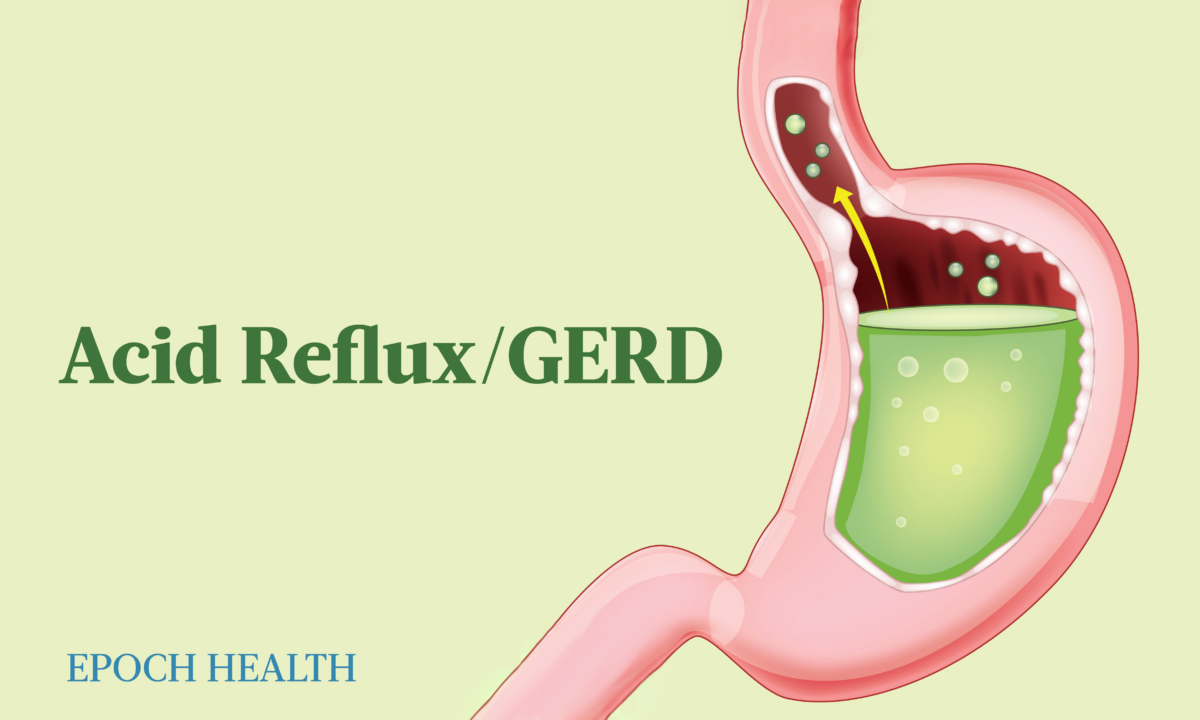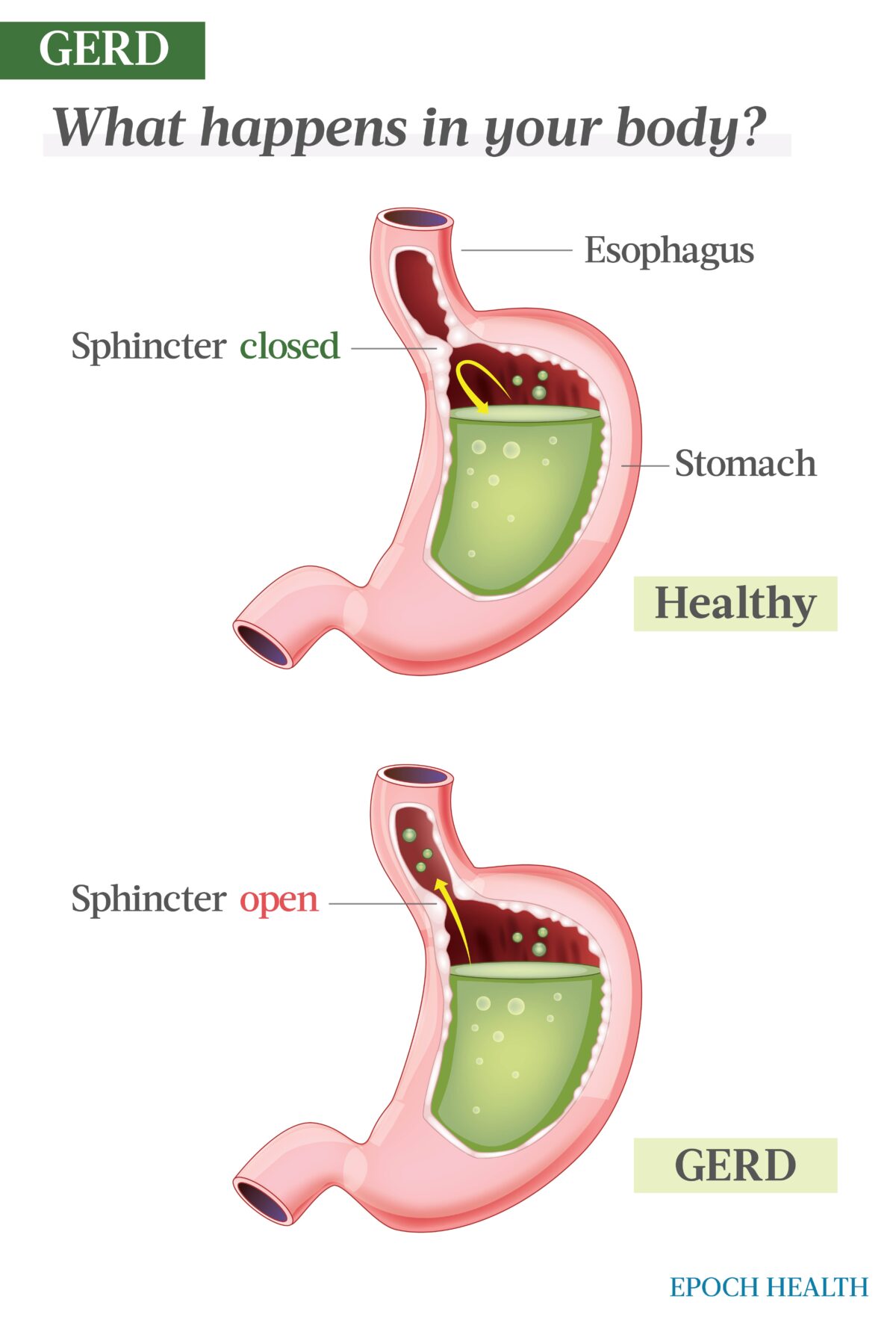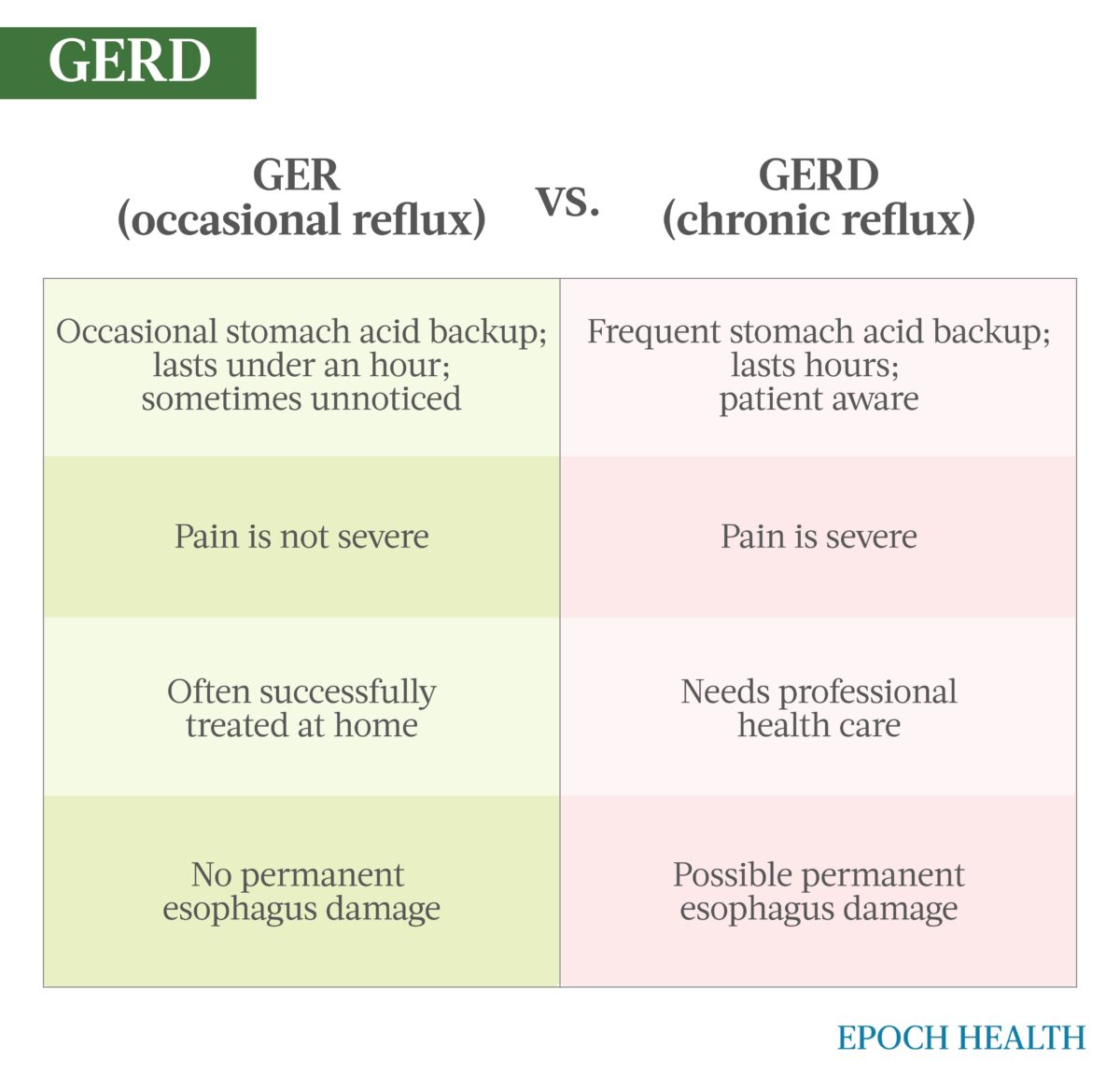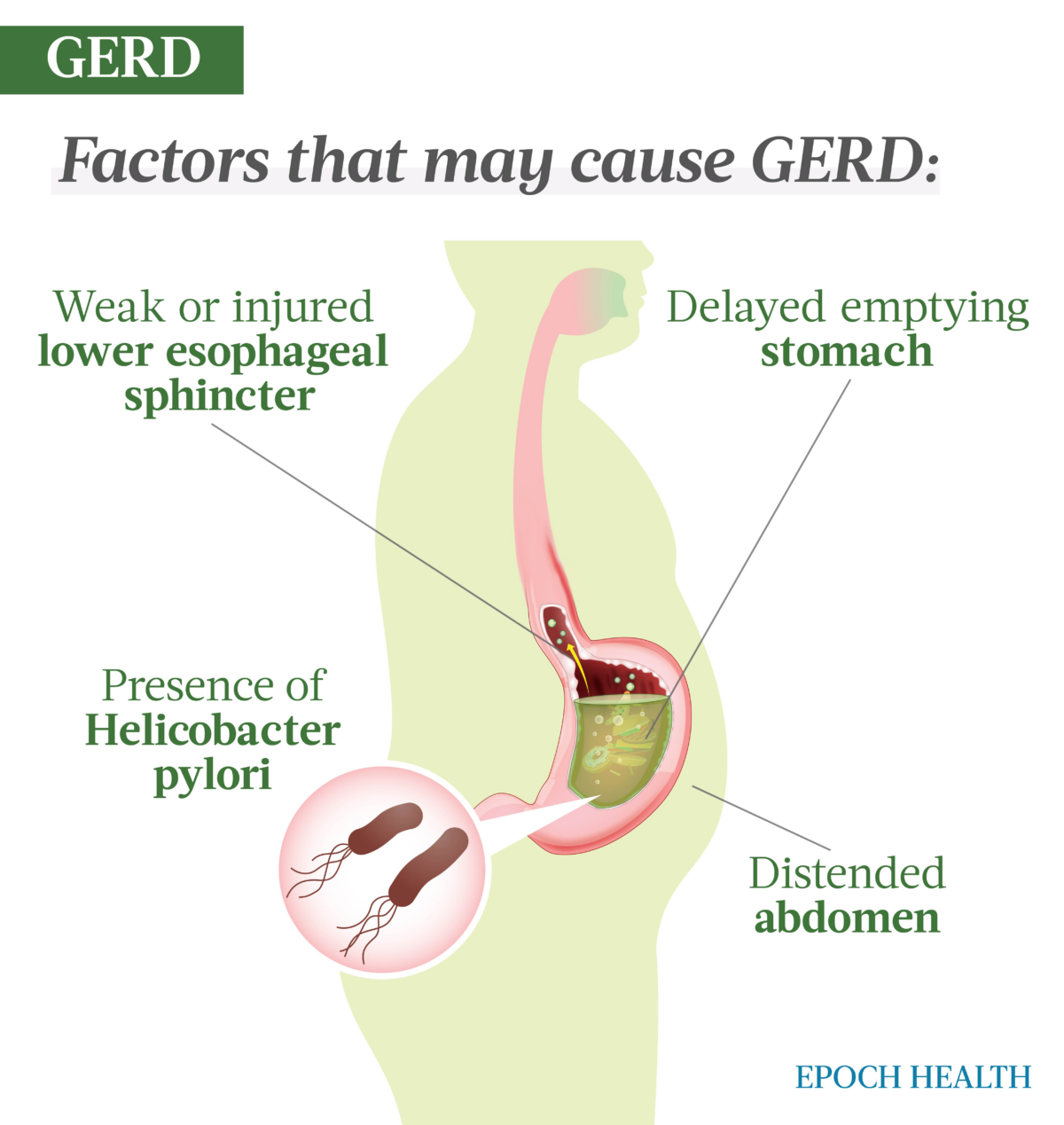


Gastroesophageal reflux disease (GERD) results from stomach acid repeatedly flowing back into the esophagus, the digestive tube that runs between the mouth and stomach, due to a dysfunction in the lower esophageal sphincter (LES). This can irritate the lining of the esophagus.
Many people experience occasional gastroesophageal reflux (GER), more commonly known as acid reflux or heartburn. According to epidemiological data from the International Foundation for Gastrointestinal Disorder (IFFGD), up to 40 percent of people experience acid reflux at least once a month, with 20 percent experiencing it on a weekly basis.
Occasional acid reflux is not a serious condition and can often be treated effectively at home. However, when acid reflux happens repeatedly and frequently, it can cause GERD—a condition in which the lining of the esophagus is damaged due to prolonged exposure to stomach acid. According to the National Institute of Health, 20 percent of Americans suffer from GERD. It can be a serious condition that should be treated in consultation with a physician.
Most people can manage the symptoms of GERD with lifestyle changes and/or medications. In rare cases, some may need surgery to address their symptoms.
A lesser-known kind of acid reflux is laryngopharyngeal reflux (LPR)—sometimes called “silent reflux.” This is caused by the same dysfunction of the LES, but in LPR, stomach acid backs up all the way to the larynx (voice box) or the pharynx (back of the throat). It is called silent reflux because it is harder to diagnose in adults, though the condition is common in infants whose sphincter muscles have not yet fully developed. Only one or two of the symptoms listed below may be present in the case of LPR.
Symptoms occur twice a week or more and may include:
Symptoms may be chronic or rare and may include:
LPR is a serious condition that can result in a scarred throat and voice box. It can also increase risk for cancer in these areas, impact the lungs, and aggravate conditions such as asthma, emphysema, or bronchitis. If you think you have either GERD or LPR, consult a physician as soon as possible.
As described by the IFFGD, “the two most frequently reported symptoms of GERD are heartburn, which can be described as a burning discomfort that begins behind the breastbone and radiates to the neck and throat, and acid regurgitation, which is characterized as a bitter, sour tasting fluid.”
Sometimes patients suffer from other symptoms, such as:
The condition can also cause bad breath. Some GERD patients have no apparent symptoms.
Acid reflux is caused by the failure of the sphincter muscle connecting the esophagus to the stomach to properly close after opening to admit food and drink.
Researchers have not isolated a single cause for this problem. Certain physical factors may cause GERD, including:
Research indicates that many factors can contribute to the development of the disease. Some are non-modifiable factors such as gender, age, or genetic factors. Among contributing modifiable factors are lifestyle, diet, and excessive body weight. Lifestyle risk factors include:
In terms of diet, a number of foods likely to trigger acid reflux have been identified, including:
Eating habits such as irregular mealtimes, overeating, and eating meals just before bedtime have also been correlated with the symptoms of GERD.
Your physician is likely to make an initial diagnosis based on your symptoms and eating habits. However, positive confirmation, including the ruling out of other conditions such as heart disease, requires testing.
To confirm a diagnosis, your physician may order one or more of the following:
The wide range of symptoms for GERD contributes significantly to the expense of tests needed to rule out other conditions. For example, the expense of excluding heart attacks and other cardiac problems can be quite costly.
According to the American Gastroenterological Association, untreated GERD can lead to:
GERD can also lead to complications beyond the esophagus, including inflammation of the pharynx and larynx. It may also affect the lungs, causing bronchitis, asthma, or pneumonia.
GERD is treated with diet and lifestyle adjustments, medication, and, in rare instances, surgical intervention.
Diet and lifestyle are crucial first steps in treating GERD. Recommendations to relieve symptoms include:
If your condition doesn’t respond to these lifestyle and diet changes, your doctor may prescribe medication. For GERD, these medications are either designed to decrease your levels of stomach acid or increase the peristalsis (muscular movement) of the upper digestive tract, forcing the acid back down into the stomach where it belongs.
Research has shown a link between GERD and psychological factors. In a seminal 2016 study of over 1,200 firefighters, researchers found a higher incidence of depression, stress, and low self-esteem among GERD sufferers than among those firefighters who were GERD-negative. The researchers concluded, “psychological and medical approaches should be combined in GERD assessment.”
Some research has shown a connection between anxiety and GERD. If this is true in your case, you may want to speak with your doctor about medications to treat anxiety and/or depression. Activities that reduce anxiety such as meditation, yoga, “forest bathing,” regular exercise, or breathing exercises may also help address your symptoms.
Researchers have also found an association between GERD and poor sleep quality.
The exact relationship is not understood, but researchers have suggested that improved sleep could also alleviate the symptoms of GERD.
Discuss your sleep habits with your physician or health care provider. They may recommend supplementing melatonin or changes like using blackout blinds, white noise machines, removing or disabling electronics in your sleep space, and more.
At least two studies have had promising results treating GERD symptoms with extracts obtained from Opuntia ficus-indica, commonly known as prickly pear cactus.
According to Harvard Medical School, licorice, chamomile, and marshmallow root have been found to be effective in treating GERD in several studies. Slippery elm and d-limonene also have anecdotal evidence supporting their use.
While nothing you can do will be 100 percent effective in preventing GERD, losing weight if you are overweight and stopping smoking if you smoke are two lifestyle choices that can make a big difference. Reducing or stopping the usage of certain medications that can aggravate acid reflux/GERD may also be effective, though you should consult your physician before discontinuing or lessening your medications. Medications that aggravate GERD are:
As indicated above, eating and sleeping well in addition to lifestyle choices to manage stress and anxiety can also help control acid reflux/GERD.



